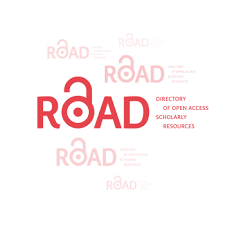Meningkatkan Hasil Belajar Peserta Didik dengan Menggunakan Model Inkuiri Terbimbing pada Materi Pencemaran Lingkungan di Kelas VII SMP Negeri 2 Ketapang
DOI:
https://doi.org/10.31571/jpsa.v4i1.2792Keywords:
hasilbelajar, inkuiri terbimbing, penncemaran lingkunganAbstract
Downloads
References
Hamalik, O. Proses Belajar Mengajar. Jakarta: Bumi Aksara. 2001.
Huzaimah; Utami, S.; dan Kartono. Peningkatan Keterampilan Proses IPA menggunakan Metode Kerja Kelompok. Jurnal Pendidikan dan Pembelajaran Khatulistiwa, 4(4): 1-16 2015.
Lasmini, N. W. Meningkatkan Hasil Belajar Siswa Melalui Model Pembelajaran Kooperatif pada Mata Pelajaran IPA di Kelas V SD Negeri 2 Tatura. Jurnal Kreatif Tadulako Online, 4(4): 329-342, 2016.
Nurussaniah, Trisianawati, E.; dan Sari, N. S. Pembelajaran Inkuiri untuk Meningkatkan Keterampilan Proses Sains Calon Guru Fisika. Jurnal Ilmiah Pendidikan Fisika Al-BiRuNi, 6(2): 233-240, 2017.
Sanjaya, W. (2008). Strategi Pembelajaran Jakarta: Kencana Prenada Media Group.
Sudjana, Metode Statistika, Bandung: Penerbit Tarsito, 1996.
Nasution, S. W.R.; Penerapan Model Inkuri Terbimbing (Guided Inquiry) dalam Meningkatkan Kemampuan Berpikir Kritis pada Pembelajaran Fisika. Jurnal Education and Development, 3(1):1-5, 2018.
Megawati. Penerapan Model Pembelajaran inkuiri Terbimbing untuk Meningkatkan Hasil Belajar Biologi pada Materi Saling Ketergantungan dalam Ekosistem Siswa Kelas VII A SMP Negeri 2 Tandun Tahun 2016. Indonesian Journal of Basic Education, 1(3): 347-358, 2018.
Downloads
Published
How to Cite
Conference Proceedings Volume
Section
License
Authors who publish with this journal agree to the following terms:
Authors retain copyright and grant the journal right of first publication with the work simultaneously licensed under a Creative Commons Attribution License that allows others to share the work with an acknowledgment of the work's authorship and initial publication in this journal.
Authors are able to enter into separate, additional contractual arrangements for the non-exclusive distribution of the journal's published version of the work (e.g., post it to an institutional repository or publish it in a book), with an acknowledgment of its initial publication in this journal.
Authors are permitted and encouraged to post their work online (e.g., in institutional repositories or on their website) prior to and during the submission process, as it can lead to productive exchanges, as well as earlier and greater citation of published work.

 Download: 75
Download: 75










